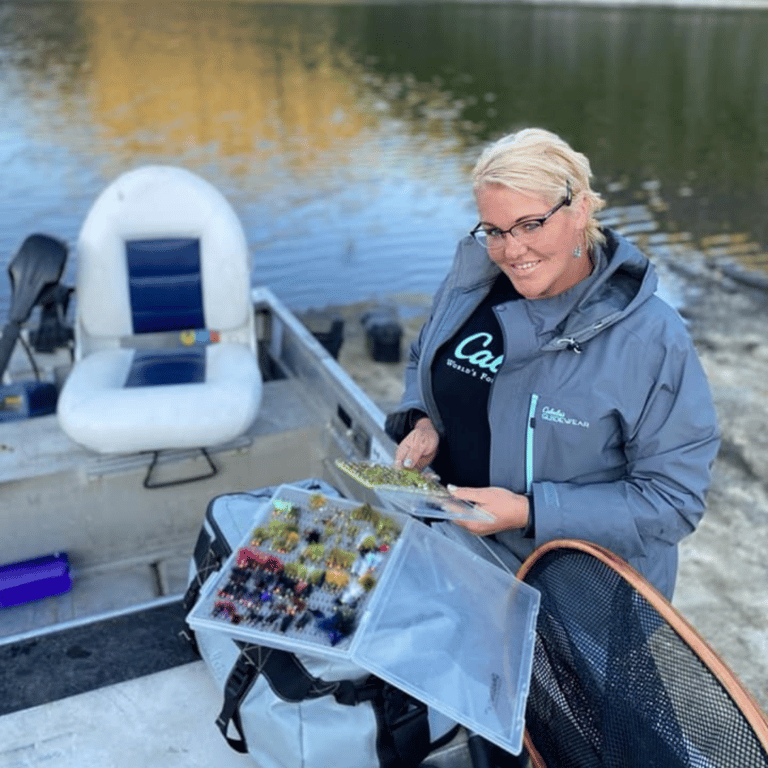You really need to know what’s in the water. When I first come to the lake I tend to put on a searching pattern on and hope to catch a few fish. Taking a throat sample can be helpful to see what the fish are feeding on. Watch Aggie’s reivew of the typical stillwater flies she uses.
Blood Worms and Daphnia (Water Fleas) -
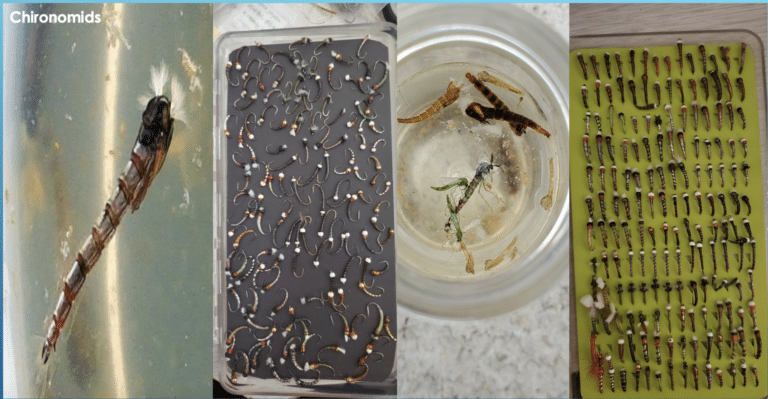
Chironomids -
Size 10-20, in a variety of colors; use in early season after ice out. Watch for shucks on the water or swallows diving toward the water to know when the chironomids are hatching.
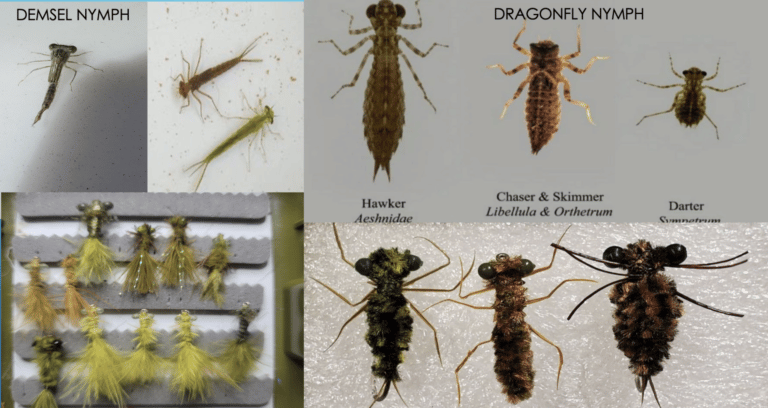
Damsel Nymphs and Dragon Flies
Fish damsels early in the spring through summer, under an indicator or cast and retrieve. Later in the season, into summer, fish dragonfly nymphs, in mid to deep water; use heavier leader material, up to 10 lb test as fish hit dragons hard.
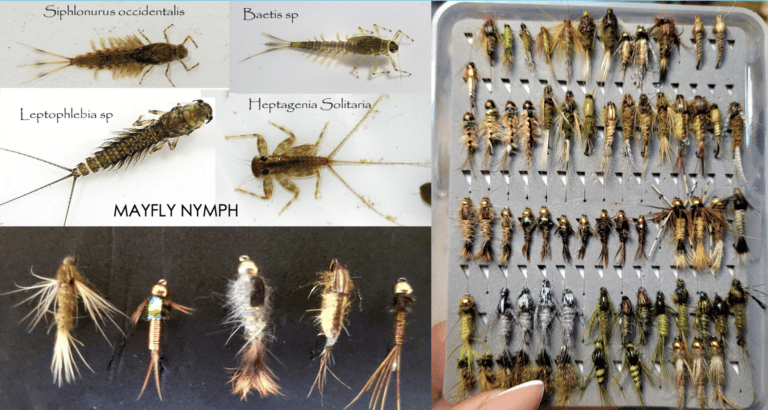
Mayflies
All sizes and colors, with or without beads. Mayflies hatch late spring, early summer and throughout the year.
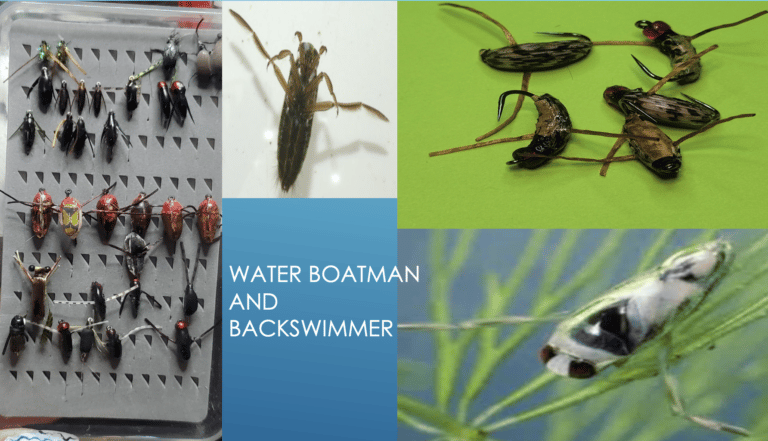
Water Boatman and Back Swimmers
Become active after ice out and again in late fall. They swim very fast with lots of short pauses; cast out, let them sink just below the surface, retrieve with short, fast strips. To fish floating pattern, use intermediate or type 3 sinking line with short leader- 2 ft; to fish sinking pattern, use floating or intermediate line with 3 ft leader. Use heavier leader material, up to 10 lb test as fish hit them hard.
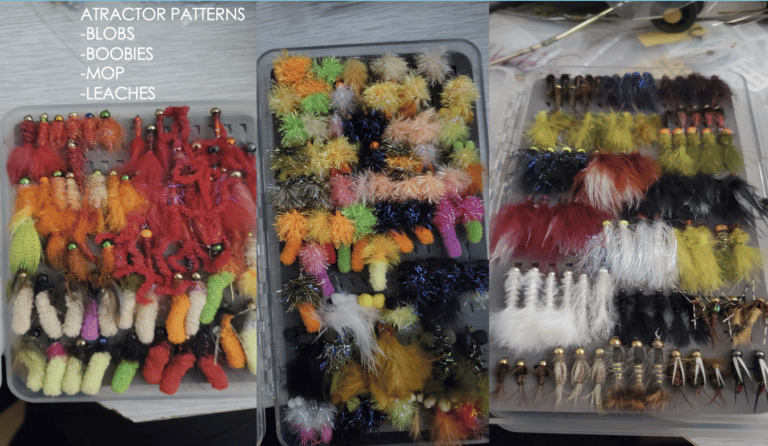
Attractor, Searching Patterns
Blobs, boobies, mop flies, leeches. In early spring or as your first fly, use attractor or searching patterns. Blobs/boobies/mop flies are attractor/searching patterns; cast out, let them sink then strip fast and short, pause, strip fast and short. Leeches- use a variety of colors.
Shimp and Scuds
Use a variety of size and colors- #10-#16, olive to dark green to grey (ghost shrimp); add an orange spot (pregnant shrimp). Watch for scuds swimming around shoreline of lake.


